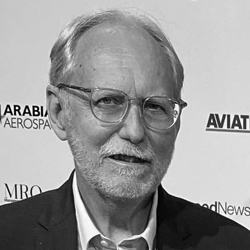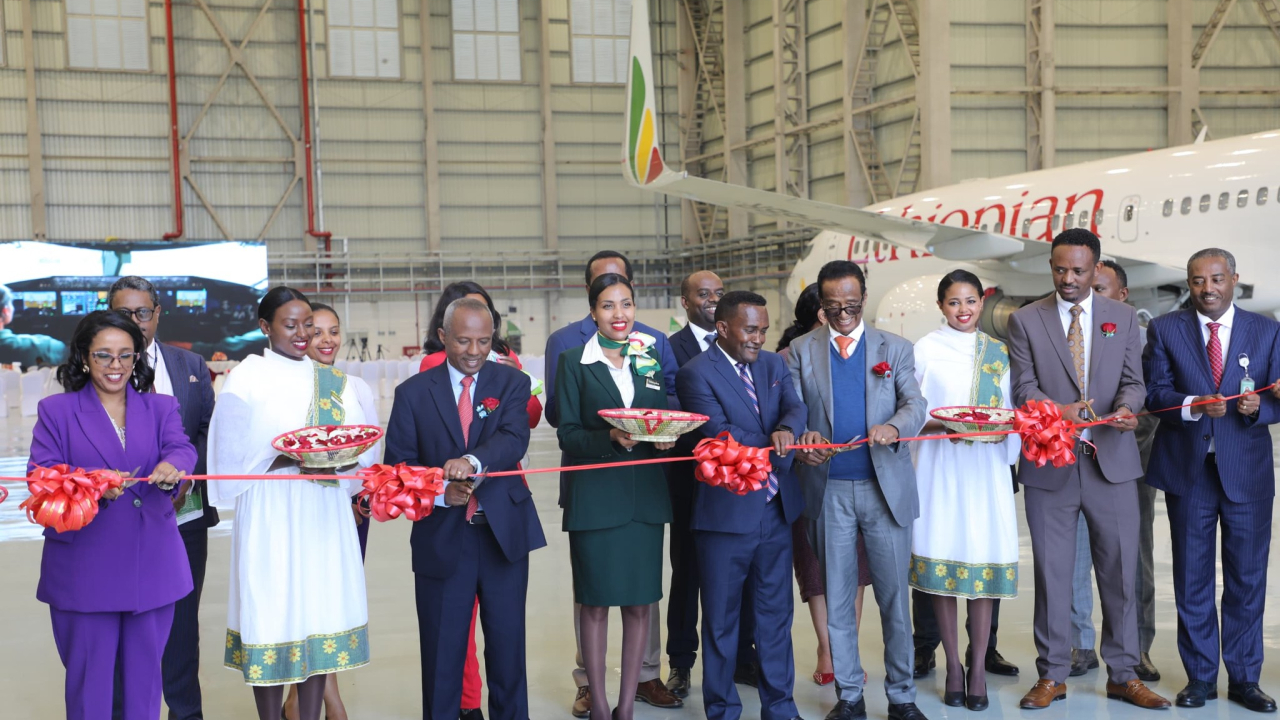MRO set to break new ground in Africa
Africa is not blind to what must happen in MRO for its civil aviation to reach full potential. Recent moves by several airlines are promising, but more is needed.

Digging deep: Festus Keyamo lays the foundation for the $10m EXJet flight support engineering hub. IMAGE: XEJet
Unscheduled maintenance issues forced Nigeria’s Air Peace to cancel flights to six states in January. Meanwhile, numerous African-registered aircraft are reportedly languishing at foreign bases, prevented from rejoining their fleets by unpaid bills.
It’s a familiar story. Ali Tounsi, secretary-general of ACI Africa, surprised nobody when he said in an African Airlines Association (AFRAA) webinar that infrastructure challenges continue to dog African aviation. He went on to note that the sector’s success depended on stronger government engagement, regional cooperation, and strategic investment in infrastructure.
Despite encouraging figures, recovery from the pandemic was uneven across the continent. “Central Africa, for example, is lagging behind due to limited infrastructure and high operating costs, while political instability continues to affect parts of Northern Africa,” Tounsi said in press reports.
Investor confidence appears to be picking up, said Lagos-based publication BusinessDay in a reporting domestic MRO moves by United Nigeria airlines, XEJet and Ibom Air.
United Nigeria signed an MOU in 2024 with Cronos Aviation, an international charter airline based in Montreal, to build an MRO in Nigeria. The agreement includes transfer of technology from Cronos and help in technical training for United Nigeria personnel.
In late January, premium-class airline XEJet welcomed Nigerian aviation minister Festus Keyamo to turn the soil for its new $10-million MRO, flight support and engineering centre at Abuja’s Nnamdi Azikiwe international airport (see sidebar).
Meanwhile, Ibom Air is working with Airbus Consulting on a long-term MRO strategy and business plan that includes full-scope A220 work. The airline has been reported to be considering replacing its fleet of Bombardier CRJ900s with the Airbus type, ironically developed by Bombardier as the CSeries.
Chief operating officer George Uriesi told an AFRAA webinar in 2024 that the decision had been made “to do our maintenance at home” but that “the investment is quite huge,” and staffing with qualified engineers would “require us to collaborate with an established MRO.”
The newspaper quoted industry analyst Olumide Ohunayo, director of research at Zenith Travels, as saying although the aviation minister had been approving establishment of MROs, their actual construction and certification remained hurdles to be overcome.
But the effort could pay off. With neighbouring countries still lacking their own MRO facilities, Nigeria would be well-placed to join the ranks of African countries including Morocco, Ethiopia and South Africa, which can handle repairs and servicing of components as well as airframes and engines.
Aviation success stories in China and the Middle East could serve as a blueprint to African airlines and governments, said captain Samuel Caulcrick, chief executive of Lagos-based Merchant Express Cargo Airlines. He told an interviewer that state-backed financing and subsidies had enabled enterprises to thrive through the provision of low-cost capital and investment in modern infrastructure, including MRO facilities.
Establishment of an aviation development bank (ADB) would be a game-changer for the sector, he said, citing the China Development Bank (CDB) as a model.
Capt Caulcrick, a former rector of the Nigerian College of Aviation Technology (NCAT), Zaria, urged the government to set up the ADB as a specialised financial institution and provide initial capitalisation through funding, private sector investment or international partnerships, adding that the bank could collaborate with international aviation organisations, aircraft manufacturers and financial institutions to access expertise, funding, and technology.
Domestic MRO capabilities would bring substantial direct and indirect benefits by stemming the flow of foreign exchange that servicing aircraft abroad draws from the economy every year. At the recent Airline Economics Growth Frontiers Global in Dublin, stakeholders were adamant in interviews with the News Agency of Nigeria (NAN) that MRO capabilities had to be prioritised.

Hadiza Usman: “For Nigeria, developing a strong local MRO capability is essential as the country looks to expand its aviation sector.” IMAGE: Nigeria Ministry of Information
Among them was Hadiza Usman, special adviser to the Nigerian president on policy and coordination, who said prioritising MRO establishments would create jobs and save cost in Nigeria.
“For Nigeria, developing a strong local MRO capability is essential as the country looks to expand its aviation sector, particularly with plans to adopt dry leasing arrangements with Boeing,” she said, which made local MRO services indispensable for maintaining and managing these aircraft efficiently.
A “robust MRO industry” would save costs for airlines, enhance operational efficiency, and support the local economy by creating jobs and building technical expertise. Strengthening local MROs also aligned with the broader goal of reducing capital flight and fostering self-reliance in the aviation sector.
Elsewhere, Kenya Airways (KQ) has reached a milestone by gaining EASA Part 145 certification for line and base maintenance on Embraer E190 and Boeing 737 types, as well as line maintenance on the B787-8. It also covers component maintenance and specialised non-destructive testing (NDT).
With this certification, KQ can service European-registered aircraft, opening new business opportunities and reinforcing its position as a key player in global aviation maintenance, the carrier said in a statement.
The airline plans to expand its maintenance capabilities further as it seeks to establish itself as one of Africa’s leading MRO providers.
It has been exploring a partnership with SAA Technical (SAAT) to boost the airline’s maintenance capabilities, with a long-term goal of establishing its MRO as an independent business unit.
This potential collaboration aligns with KQ’s broader vision of creating a pan-African alliance among African carriers, a concept first proposed in 2021. With both airlines once more on a sound footing, KQ management is reportedly keen to restart discussions with SAA or pursue similar partnerships with other African carriers by 2027.
Fleet renewal across the continent is impacting MRO. In Angola, as part of its fleet modernisation efforts, TAAG Angola Airlines signed a 12-year total component support (TCS) contract with Lufthansa Technik for its new fleet of Boeing 787-9s and -10s. The first of four on order arrived in Luanda on February 4.
The global MRO provider will also support TAAG Angolan with an aircraft production inspection programme (APIP) covering all newly-built 787s and Airbus 220s in the fleet. Currently, the APIP comprises four 787s and 15 A220s, with the flexibility to cover additional aircraft as TAAG’s fleet develops. Base maintenance is not part of the contract.
Under the TCS, the Luanda-based airline expects to see significant cost benefits through access to Lufthansa Technik’s worldwide spares pool. The contract also covers aircraft on the ground (AOG) coverage as well as various parts-pooling and logistics work scopes.
TAAG Angola’s chief executive, Nelson Oliveira, said in a statement: “With [Lufthansa Technik’s] strong support, we are looking forward to a quick ramp-up of our new 787 and A220 operations. Our partner’s reliable component support will ensure a smooth 787 Dreamliner operation from day one.”
Stay up to date
Subscribe to the free Times Aerospace newsletter and receive the latest content every week. We'll never share your email address.


